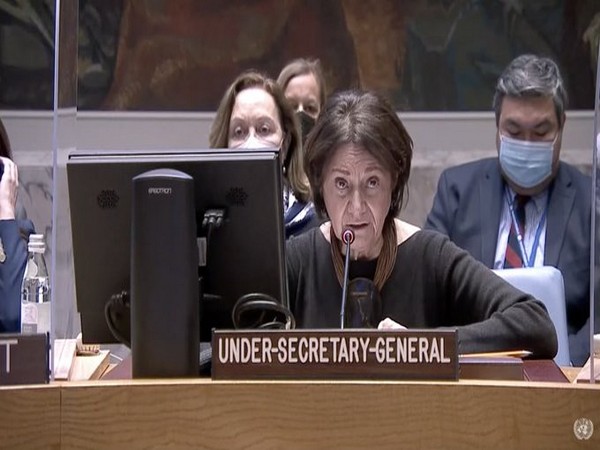UN Security Council Urges Diplomatic Measures Amid Escalating West Asia Tensions
The UN Security Council calls for urgent diplomacy to address rising tensions in West Asia following the killings of Hamas leader Ismail Haniyeh and Hezbollah's military commander Fuad Shukr. The council underscores the need to prevent further escalation and work towards regional peace and stability.

- Country:
- United States
The United Nations Security Council has called for immediate diplomatic action to alter the course of events and aim for regional peace and stability amid escalating tensions in West Asia. This follows the recent assassinations of Hamas leader Ismail Haniyeh and Hezbollah's military commander Fuad Shukr. "The UN Security Council is convening an emergency meeting to discuss the concerning developments in the Middle East," stated Rosemary DiCarlo, UN Under-Secretary General for Political and Peacebuilding Affairs, during an emergency briefing held on July 31.
Ismail Haniyeh was killed in Tehran early Wednesday, while Hezbollah commander Fuad Shukr was killed in a separate Israeli strike in Beirut the day before. DiCarlo noted that Iran has accused Israel of violating its sovereignty by carrying out the attack on Haniyeh, labeling it a "serious infringement" and a breach of international law.
DiCarlo also cited Iran's Supreme Leader Ayatollah Ali Khamenei's vow to avenge Haniyeh's death. Non-State armed groups loyal to Iran have issued threats of retaliation against Israel. Meanwhile, Israeli Prime Minister Benjamin Netanyahu declared that Israel had launched strikes against multiple fronts, asserting the country is engaged in an existential conflict with Iran.
Describing the recent attacks as "dangerous escalations," DiCarlo emphasized the necessity of diplomatic efforts to avert further conflict and promote stability in the region. She called on the international community to "prevent actions that could broaden the conflict rapidly."
The emergency UNSC meeting was requested by Iran, with support from Russia, Algeria, and China. These nations condemned the assassination of Haniyeh.
US Deputy Ambassador to the UN, Robert Wood, reiterated Israel's right to self-defense, urging pressure on Iran to cease escalating its proxy war. Japan's representative, Shino Mitsuko, warned that the region is on the brink of a large-scale conflict. Russia condemned the assassination as a severe blow to mediation efforts towards a Gaza ceasefire.
Iranian Ambassador Amir Saeid Iravani condemned the assassination, accusing Israel of broader aggression in the region and criticizing the US for shielding Israel. He called for possible sanctions against Israel.
US representative Wood stated that the US was not involved in the targeted killings and emphasized ongoing diplomatic efforts to de-escalate the situation.
Israeli envoy Jonathan Miller asserted Israel's right to retaliate strongly against threats, accusing Iran of supporting regional terrorism.
Lebanese representative Hadi Hachem denounced Israel's aggressive actions, emphasizing Lebanon's desire for peace.
(With inputs from agencies.)










